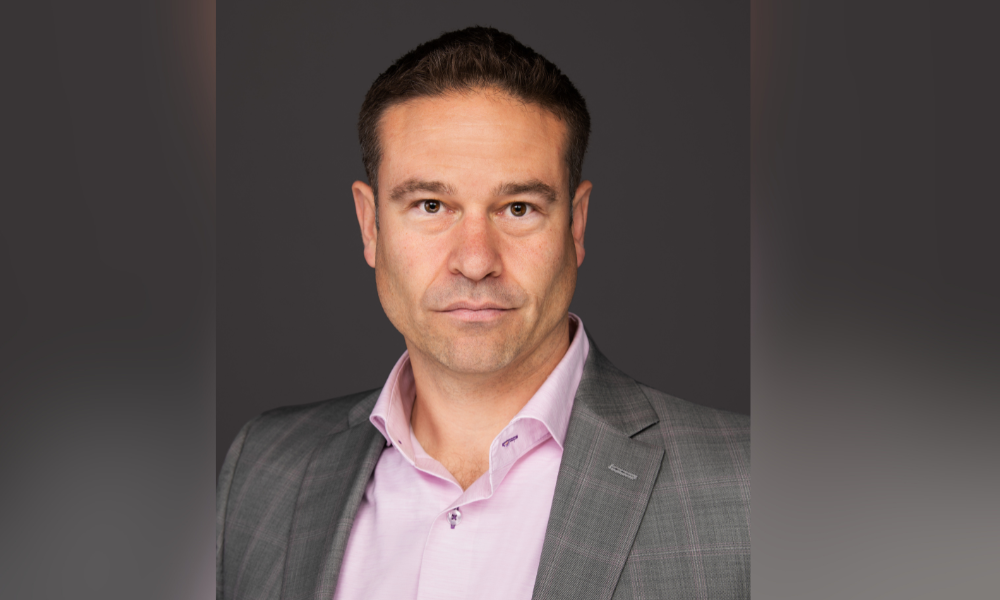Looking at recent case in Alberta, employment lawyer offers tips on how to monitor – and discipline – off-duty social media conduct

A recent Alberta arbitration decision highlights the boundaries of employer oversight and discipline in cases of off-duty social media use, offering valuable insights into how employers and HR should handle situations where online conduct disrupts workplace harmony.
Employment lawyer Ryan Markesic of Hicks Morley in Toronto explains the implications of this decision, noting how it underscores employers’ rights to investigate and discipline employees for social media conduct if it creates a hostile or toxic work environment.
“In both [public and private sector] situations, you can discipline employees… for their social media conduct,” he says, emphasizing the broad applicability of these principles to most workplaces.
When off-duty conduct impacts the workplace
The Board of Governors of Mount Royal University v Mount Royal Faculty Association decision clarifies that while social media allows employees to voice personal opinions, employers can take action if those views affect the workplace, Markesic explains.
The case involved a professor whose social media conduct prompted complaints from colleagues, citing a "toxic atmosphere." As Markesic explains, “It could give rise to investigations in the workplace, and it could give rise to discipline in the workplace, including a suspension, warning letter, and even termination.”
The arbitrator in the Mount Royal case highlighted how the professor’s social media interactions had a negative impact on workplace morale, stating, “the workplace was toxic during this period because of the Twitter war…[and] the evidence is overwhelming that [the professor] significantly contributed to the malignant Twitter war environment.”
This case exemplifies how even personal social media activity can cross into professional boundaries if it disrupts work relations or creates discomfort among colleagues.
Drawing the line on social media behaviour
Determining when an employee’s social media activity crosses the line into misconduct can be challenging; Markesic explains that for employer intervention to be appropriate, the behaviour must breach relevant policies, such as anti-harassment or respectful workplace guidelines.
“One of the principles in this case was that this professor has this ‘academic freedom’… but there are constraints… whether that’s human rights considerations… or occupational health and safety considerations.”
These constraints apply across different employment settings, he says, creating a level of accountability for all employees when off-duty behaviour impacts their professional environment.
The arbitrator’s findings in the Mount Royal case indicated that some of the professor’s conduct met the threshold for harassment, stating that “harassment must also be viewed objectively.” The case therefore serves as a reminder that any social media activity creating a hostile or divisive workplace atmosphere can be actionable under workplace policies.
Using progressive discipline for social media misconduct
When off-duty social media behaviour warrants discipline, a progressive approach is often best, according to Markesic. This strategy can start with a verbal or written warning, escalate to suspension, and ultimately end in termination if necessary.
This principle applies to both unionized and non-unionized workplaces, however every instance must be investigated on a “case-by-case basis,” he says, with employers assessing each incident’s severity and respond proportionally.
Not all cases, however, require progressive discipline—severe cases, like hate speech, may justify immediate termination, Markesic says. Employers should, therefore, carefully consider the context when choosing a response to off-duty social media activity.
In Mount Royal, the professor’s conduct, though disruptive, did not meet this threshold, resulting in suspension rather than dismissal. The arbitrator pointed out, “progressive discipline does not require always starting at the lowest penalty… depending on the seriousness of the infraction, the disciplinary process may commence at any point.”
The importance of clear social media policies
Clear policies are critical for managing off-duty social media conduct. Many workplaces already have anti-harassment and respectful workplace policies that can be applied to employee conduct, both on and off duty.
Markesic recommends that employers “encapsulate” off-duty behaviour guidelines within these broader policies, adding, “It would be hard to have just a blanket ‘Here’s your off-duty social media conduct [policy].’” This approach ensures that social media behaviour is covered without infringing on employee freedom of expression.
In Mount Royal, the professor’s behaviour was tied back to the university’s anti-harassment policy. The arbitrator emphasized that “there is no evidence that the employer ever suggested that social media communications were somehow exempt from the… policy… These are provisions of general application to all employees at the university.”
Markesic points out that employers, therefore, should ensure social media misconduct discipline is clearly connected to workplace policies, to avoid ambiguity. Another important point is ensuring employees are aware that their social media behaviour does fall under workplace policies.
Leveraging third-party investigators for impartiality
For complex cases with multiple complaints or different degrees of involvement, Markesic recommends third-party investigators to provide valuable impartiality that can lend credibility to the process and help ensure fair treatment for all parties.
“It's not to say that an employer couldn't internally do its own investigation,” he says. For employers, using an outside investigator can help lead to more objective results, particularly when disciplinary measures, including potential termination, are at stake, he adds.
“When you're looking at multiple allegations, like in this case, you can see that there's some exchange happening on social media that might be deemed problematic… I think it really depends on your HR team making an assessment on when a third-party investigator should be involved, but in this case, it was deemed necessary.”




